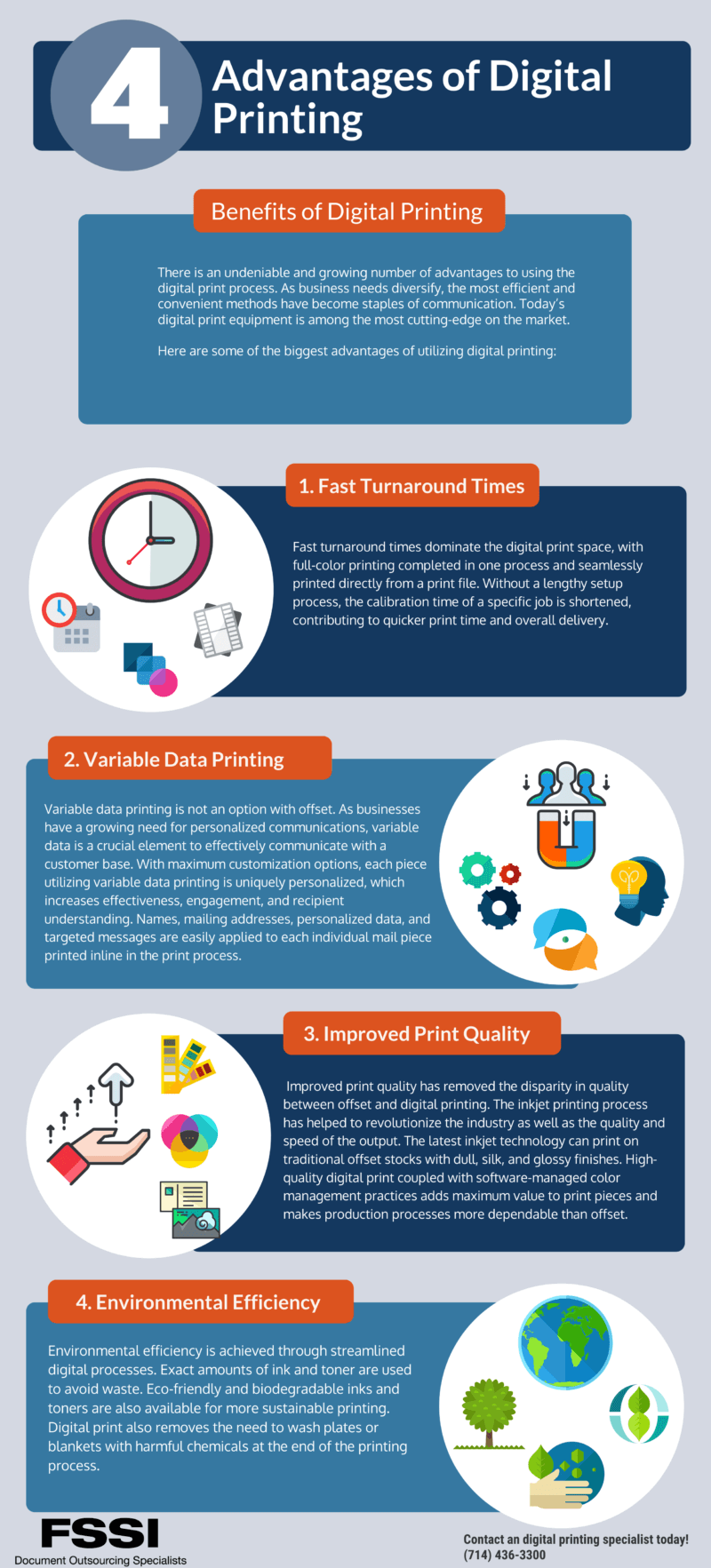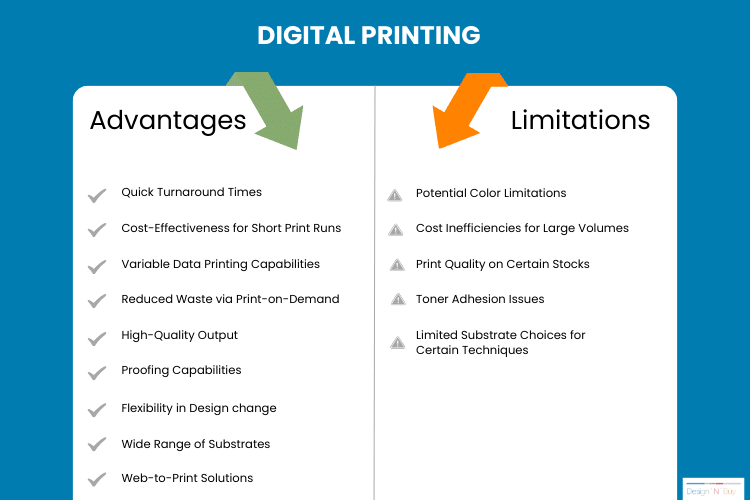Digital Printing Fundamentals Explained
Digital Printing Fundamentals Explained
Blog Article
The Best Strategy To Use For Digital Printing
Table of ContentsSome Known Questions About Digital Printing.Indicators on Digital Printing You Need To KnowDigital Printing Can Be Fun For EveryoneThe Facts About Digital Printing RevealedThe Only Guide for Digital PrintingAll About Digital Printing
Variable information printing, such as straight mail with customized codes and addresses, is preferably fit for electronic printing. Digital fast printing just requires 4 actions of style, evaluation, printing and binding to get everything done. Digital fast printing has an exceptional advantage: print on demand.According to PMMI, digital printing permits brand names and suppliers to react promptly to customer demands while enhancing the supply chain, decreasing warehousing expense and waste, and appreciating faster time to market. That all audios fantastic, however exactly how does this innovation do all that? The significant differentiator of these technologies is that there are no set-up costs and no plates with electronic printing.
An Unbiased View of Digital Printing
This results in quicker turnaround time and reduces cost when making use of digital printing.
Fast manufacturing implies obtaining your product to market quicker. It additionally suggests it's less complicated and faster to make changes in the future, when you change a dish, add a SKU, or produce seasonal product packaging. Digital printing is very adaptable, so it's easy to make modifications to the plan design rapidly. It all goes back to home plates.
A lot more supply can indicate even more waste down the roadway. With conventional printing approaches, short-run printing is simply not possible. Due to the fact that a great layout can make or break your product, electronic printing regularly produces top quality, clear and vivid graphics each time. Digital printing on versatile pouches adds the brilliant, vibrant, and accurate graphics that virtually beckon consumers to connect and touch them.
Digital printing is the process of printing digital-based images directly onto a selection of media substratums. There is no requirement for a printing plate, unlike with balanced out printing. Digital data such as PDFs or desktop computer posting data can be sent straight to the digital printing press to publish theoretically, photo paper, canvas, fabric, synthetics, cardstock and various other substratums.
Getting The Digital Printing To Work
According to PMMI, digital printing permits brands and suppliers to respond quickly to consumer needs while enhancing the supply chain, reducing warehousing price and waste, and enjoying faster see post time to market. That all noises excellent, but just how does this innovation do all that? The significant differentiator of these innovations is that there are no set up charges and no plates with electronic printing.
According to Wikipedia, the biggest distinction between digital printing and standard approaches such as lithography, flexography, gravure, or letterpress is that there is no need to replace printing plates in electronic printing, whereas in these analog printing methods home plates are repetitively replaced. This causes quicker turnaround time and reduces price when using electronic printing.

10 Easy Facts About Digital Printing Shown
With traditional printing methods, short-run printing is simply not possible. Because a terrific design can make or damage your product, digital printing regularly creates high-quality, clear and vivid graphics each time.

According to PMMI, electronic printing allows brand names and makers to respond swiftly to consumer needs while enhancing the supply chain, reducing warehousing expense and waste, and enjoying faster time to market. That all audios wonderful, however how does this technology do all that? The Look At This significant differentiator of these modern technologies is that there are no set-up costs and no plates with digital printing.
See This Report on Digital Printing
According to Wikipedia, the biggest difference between electronic printing and standard techniques such as lithography, flexography, gravure, or letterpress is that there is no requirement to replace printing plates in electronic printing, whereas in these analog printing methods the plates are continuously replaced. This results in quicker turnaround time and reduces expense when utilizing digital printing.
Quick manufacturing implies obtaining your item to market much faster. It additionally indicates it's simpler and faster to make modifications later, when you transform a dish, include a SKU, or develop seasonal product packaging. Digital printing is very adaptable, so it's simple to make adjustments to the bundle style promptly. All of it returns to home plates.

Getting The Digital Printing To Work
Digital printing is the process of printing digital-based pictures straight onto a range of media substratums. There is no requirement for a printing plate, unlike with countered printing. Digital documents such as PDFs or desktop publishing data can be sent out directly to the digital printing machine to publish on paper, picture paper, canvas, textile, official source synthetics, cardstock and other substratums.
Report this page